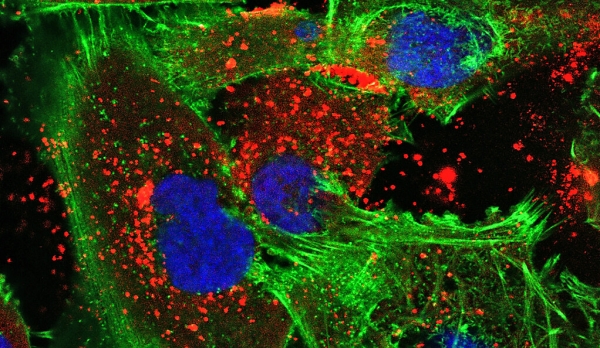A team of researchers from Yale and the University of Connecticut (UConn) has developed a nanoparticle-based treatment that targets multiple culprits in glioblastoma, a particularly aggressive and deadly form of brain cancer.
The results are published Feb. 8 in Science Advances.
The new treatment uses bioadhesive nanoparticles that adhere to the site of the tumor and then slowly release the synthesized peptide nucleic acids that they’re carrying. These peptide nucleic acids target certain microRNAs — that is, short strands of RNA that play a role in gene expression. Specifically, they’re directed at a type of overexpressed microRNA known as “oncomiRs” that lead to the proliferation of cancer cells and growth of the tumor. When the peptide nucleic acids attach to the oncomiRs, they stop the tumor-promoting activity.
The laboratories of professors Mark Saltzman of Yale and Raman Bahal of the University of Connecticut collaborated on the treatment system. Unlike similar efforts that target only one oncomiR at a time, this treatment targets two, making its effect on cancer cells stronger, the researchers say. The test mice who received the treatment lived for a significantly longer time than the control mice.
Read more at Yale University
Image: A new treatment developed by Yale researchers uses bioadhesive nanoparticles that adhere to the site of the tumor and then slowly release the synthesized peptide nucleic acids that they’re carrying. In this image, the nanoparticles (red) are visible within human glioma tumor cells (green with blue nuclei). Credit: Yale University


